Mahan Air Acquires Airbus A340 Amid Ownership, Sanctions Controversy
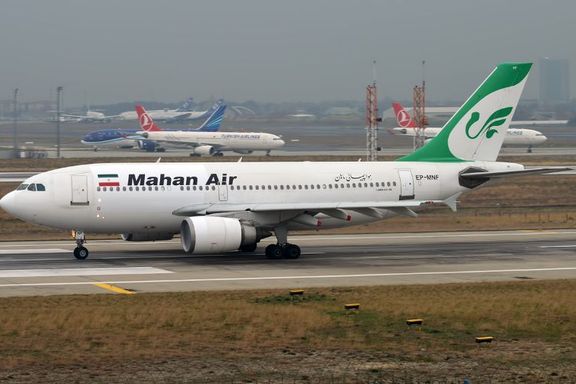
Mahan Air, a sanctioned Iranian airline with ties to the Islamic Revolutionary Guard Corps (IRGC), has reportedly imported an Airbus A340 to Iran via Indonesia.

Mahan Air, a sanctioned Iranian airline with ties to the Islamic Revolutionary Guard Corps (IRGC), has reportedly imported an Airbus A340 to Iran via Indonesia.
The 28-year-old Airbus A340, adorned with Mahan Air's livery, was seen at Tehran Mehrabad Airport in early August, although it has not yet been put into active service.
This latest addition marks the tenth A340 in Mahan Air's fleet. The airline, nominally a privately-owned entity, maintains close affiliations with the Islamic Revolutionary Guard Corps-Quds Force (IRGC-Quds Force), which resulted in Western sanctions.
In 2011, the United States imposed sanctions on Mahan Air, accusing the airline of aiding the Quds Force in covertly transferring weapons and personnel to various regions, including Syria.
Mahan Air currently operates six A340-300s and three A340-600s, making it the second-largest operator of the A340 globally, trailing behind Lufthansa (LH) based in Frankfurt International Airport.
Dutch sources reported earlier this year that the aircraft sold to Mahan Air previously belonged to the French Air Force. It was also reported that Mahan Air had not provided details regarding the purchase amount of the aircraft, citing the severe sanctions imposed on Iran's aviation industry as a possible reason for the lack of transparency.
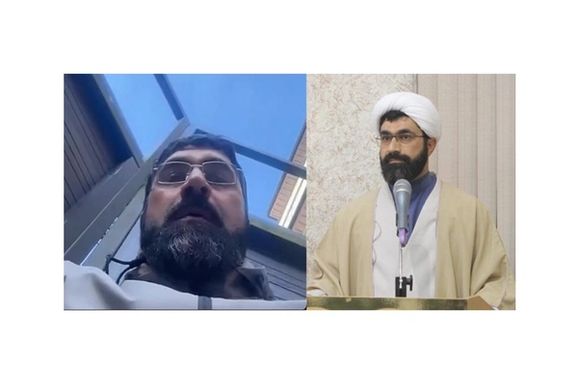
Calls to shut down an Iran-linked mosque are growing among Iranians in Finland after the Islamic center admitted that one of its imams snatched a protester’s cellphone.
Parvin Shokri, an Iranian protest organizer based in Helsinki, was returning from an anti-regime demonstration on April 24, when her cellphone was seized by a stranger in the street. She was streaming live on Instagram, something the snatcher was not aware of. As the footage shows, he grabbed the phone, ran away for nearly a minute and while panting took a peek at the phone screen, making his face seen by Shokri’s followers.
Upon seeing his face on the phone screen, the snatcher decided to bury the phone in a nearby lawn in eastern Helsinki, where Shokri would ultimately find it via geolocation, she told Iran International.
The protester, who has been an active organizer of anti-regime events in Finland, immediately reported the matter to the police, triggering an an ongoing investigation. She also started spreading the word by talking to Finnish and Persian media, saying that the man, who appeared on her Instagram Live video, is actually Behrouz Hosseinpour, an imam connected to Resalat Islamic center in Helsinki.
Shokri said that she “did not even know” the man before the incident, and that she learned of his identity through other anti-regime activists after releasing the footage on social media.
Upon these revelations, Resalat Islamic Community released a statement on its Telegram channel on September 1, admitting that it was indeed Hosseinpour, a “guest speaker,” who grabbed Shokri’s phone. The regime-linked Islamic Community cited her “threats” against members of the mosque as well as attempts to record video of religious events “without permission” as reasons that prompted the imam to act.
After reviewing the recorded video, Shokri noticed that Hosseinpour and another man had been following her prior to the attack and she believes they must have tracked her by following her 11-year-old daughter, who was supposed to meet her at a flea market in eastern Helsinki following the protest.

Shokri, who is originally from the southern Iranian city of Izeh, an epicenter of protests in the Woman, Life, Freedom movement, told Iran International that her daughter also recognized the snatcher as the man who had been following her to and from school for a while.
The Iranian diaspora in Finland has been calling for a shutdown of the center, arguing that similar to many other so-called Islamic centers such as the ones in Frankfurt or London, it is funded by Iran’s regime to track and bully Iranian dissidents.

Resalat Islamic Center said in its statement, published in both Finnish and Persian, that Hosseinpour “notified us later,” of the incident, indirectly claiming that it had no prior knowledge of the assault on Shokri. Resalat said that it is a victim of “baseless harassment and threats” by Islamophobes and right-wing activists, who frequently vandalize its premises and intimidate its members.
The statement also described Hosseinpour’s phone grabbing as an attempt to delete videos and photos that the protester had shot to “destroy his character”. Shokri said that her 42-minute live streaming, whose footage is still available on her phone, was merely about the flea market in Helsinki and had nothing to do with the mosque. She also said that this is not the first time she has been assaulted by people allegedly linked to the mosque.
The Islamic center claims that it is independent but has also shrugged off calls by Finno-Iranians to condemn violence perpetrated by Iran’s regime against protesters and activists. According to Helsingin Sanomat, Finland's largest subscription newspaper, Resalat founder Madjid Bahmanpour has “said in several interviews that the mosque received funding from ayatollahs in Iran and Iraq.”
Bahmanpour, whose son, Abbas, is an imam at the Islamic center, is a former member of the Iran's Revolutionary Guards Corps (IRGC), designated as a foreign terrorist organization by the United States. Majid and Abbas Bahmanpour, who are quite well known among the Iranian diaspora in Finland, have been at the helm of the center since 2001 and managed to recruit some 1,500 members, who are mostly first-generation immigrants from Afghanistan, Iraq and Iran.

While an investigation into the matter continues, the Islamic center is also busy holding events in and outside of the mosque, which occasionally draw ire from the Iranian community in the Helsinki area.
Ever since Mahsa Amini’s death in custody of hijab police in Iran on September 16, 2022, Finnish Iranians have held several protests, some in front of the Resalat mosque, calling on the Finnish government to support the movement and shut down the Islamic center. Protests against Iran’s regime in Finland have taken place not only in the capital, but also in much smaller cities, where the number of resident Finno-Iranians is not necessarily large.
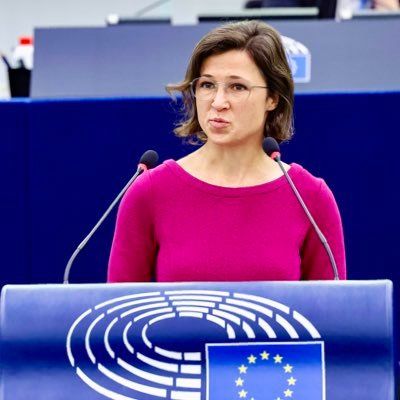
Member of the European Parliament Hannah Neumann led a petition addressed to EU Foreign Policy Chief Josep Borrell concerning the prolonged imprisonment of an EU citizen by the Islamic Republic.
In a message on X social network, MEP Neumann along with Cornelia Ernst, Bart Groothuis, and Dietmar Köster, expressed their concerns, stating, "We have some questions regarding the hostage-taking case of Johan Floderus."
Johan Floderus, a 33-year-old member of the EU diplomatic corps, has been held covertly in Iran for over 500 days as part of Iran's hostage diplomacy, as reported by The New York Times. Floderus was arrested at Tehran airport in April 2022, during what was described as a private tourist trip with friends.
MEP Neumann said the issue raises concerns for the safety of other EU citizens. "Any European in Iranian captivity is one too many. However, with the arrest of Johan Floderus, the Iranian regime is escalating the situation further and worsening already strained relations. This incident is outrageous and requires prompt clarification," she said.
The letter directed to Josep Borrell seeks answers to critical questions, including how long the EU has been aware of the Swedish citizen's imprisonment in Iran, reasons behind the lack of public communication on this matter, and the measures undertaken by the EU to secure the release of Floderus.
Members of the European Parliament have pressed Josep Borrell for answers, urging him to respond to the inquiries urgently.
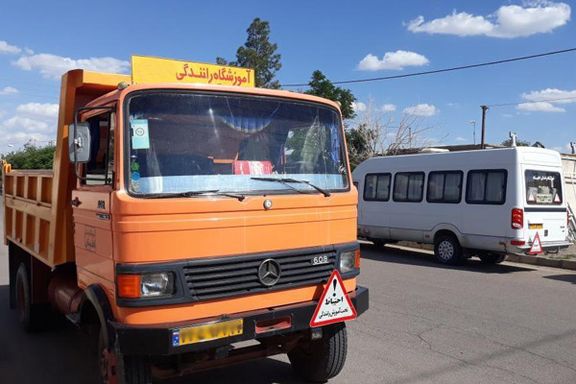
A wave of Iranian pilots are seeking commercial drivers' licenses as a path to migrate abroad, says the head of the Passenger Transport Companies Union.
Ahmadreza Ameri, during an interview with ILNA, shed light on the increasing interest of individuals with higher education backgrounds, including pilots, in obtaining commercial drivers' licenses as a strategic move towards migration opportunities. He admitted, "Today, we see individuals with higher education, including pilots, who are seeking to obtain a commercial drivers' license for migration."
This unconventional career shift among pilots is driven by the realization that possessing the license opens doors to opportunities in the cargo transportation sector, enabling them to work as bus or truck drivers. Importantly, several countries are currently offering attractive incentives, including residence permits and competitive salaries, often amounting to several thousand dollars, to drivers in the cargo transportation industry.
The desire for migration from Iran has been on the rise in recent years, encompassing not only educated professionals but also individuals from various occupational backgrounds such as the healthcare sector. Several factors contribute to the trend, including political and economic instability, rampant systemic corruption, the adverse effects of sanctions, a depreciating national currency, and inflation.
The Iran Migration Observatory's latest annual outlook underscores the scale of this migration phenomenon. The United Arab Emirates (UAE) stands out as the host to the highest number of Iranians living abroad, with over 450,000 Iranian-born residents. This is followed by countries such as the United States, Canada, Germany, Turkey, and the United Kingdom, as Iranians increasingly seek improved living standards and economic opportunities beyond their homeland.
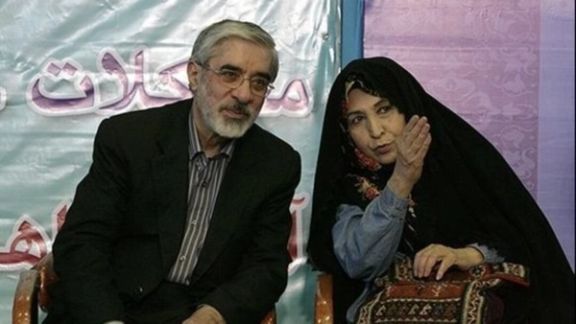
Circles close to prominent Iranian dissident figure Mir-Hossein Mousavi have raised concerns regarding the health of Mousavi and his wife who are under house arrest.
Mousavi, a former prime minister and Zahra Rahnavard, have been under house arrest, living in seclusion under the control of security forces at their home since 2011. The situation arose when they and former Majles Speaker Mehdi Karroubi were put under house arrest for leading the protests the post-2009 presidential election protests, which followed the contested election and the subsequent re-election of populist Mahmoud Ahmadinejad as Iran's President.
The Telegram channel Kaleme reported Tuesday that medical examination results handed to Mousavi and his wife do not conform to the actual symptoms of their medical conditions.
The channel, which is close to Mousavi and his supporters, revealed that medical test results pass through several security layers before reaching the two detainees, and do not reflect the extreme changes in their conditions during the past few months.
Some Iranian analysts have charged that what has been revealed in this report might indicate that the government is gradually murdering the two.
The Telegram channel added that their health conditions have visibly deteriorated after Mousavi and Rahnavard issued a statement earlier this year and supported the Woman, Life, Freedom movement and called for a referendum to change the regime based on people's demands.
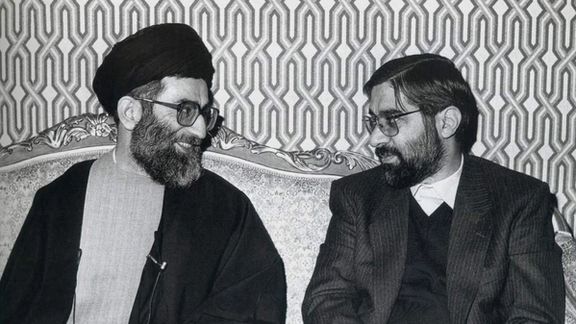
Meanwhile, unusual electronic signals are beamed constantly into their house to disrupt their communication with the outside world and these signals are likely to have affected their health, Kaleme said. Furthermore, their living situation remains highly restrictive, with security forces maintaining complete control, including holding all the keys to the property. Notably, Mousavi and Rahnavard are prohibited from accessing the rooftop water tank, which serves as their source of drinking water. The report even suggests that political allies of Mousavi fear that the water in the tank could have been tampered with or poisoned.
The Telegram channel also mentioned that the same concern also exists about food delivery to the house.
The report also highlighted that there has never been any acknowledgment of responsibility from any individual, security agency, or judicial body regarding the decision to place the Mousavi family under house arrest. This raises suspicions that the government may be using their health as a means to suppress their voices. Kaleme stressed the importance of holding the Iranian government accountable for any threats to the well-being of Mousavi and Rahnavard.
Meanwhile, in an interview with Iran International TV, Iranian political analyst Morteza Kazemian charged that the government's intervention and its total control over the medical examinations of Mousavi and Rahnavard could be interpreted as an attempt to gradually murder them under house arrest.
Another Iranian political analyst Jamshid Barzegar told Iran International TV that 6 Iranian inmates have lost their lives in Iranian prisons in recent months as security forces ignored their medical problems. Barzegar also called this a "gradual murder" and said that this has been a usual practice in Iranian prisons for a long time now. He said this report by Kalame should be taken seriously as the Islamic Republic might be attempting to terminally silence Mousavi his wife as vocal critics of the system.
Yet another analyst, Ali Hossein Ghazizadeh told Iran International that the information about the case reveals the government is most likely trying to kill Mousavi and Rahnavard by gradually poisoning them.
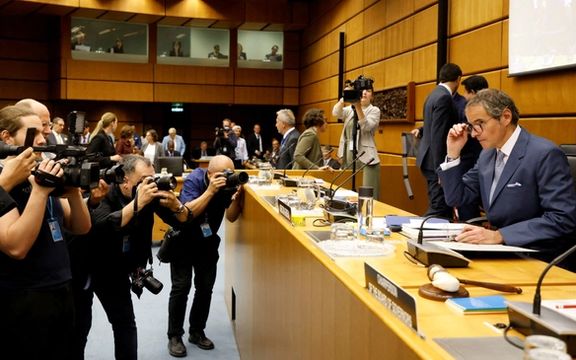
Sources close to the United Nations’ nuclear watchdog say the United States and its allies will not propose a resolution against Iran at the upcoming IAEA Board of Governors meeting.
Vienna-based journalist Stephanie Liechtenstein cited diplomatic sources as saying that no resolution censuring Tehran’s nuclear program is planned for the meeting, slated to start on September 11.
The International Atomic Energy Agency did not adopt any resolution against Iran also in its previous meetings in March and June. IAEA Director General Rafael Mariano Grossi visited Iran in early March and announced new arrangements with Tehran to restore the monitoring of nuclear enrichment activities.
However, despite Grossi's claims of a deal to return to a closer monitoring process and resolve the issue of three sites found to have been contaminated by traces of uranium, no progress has been made since March. The only result of his trip was that the West refrained from censuring Iran at the following IAEA board meetings.
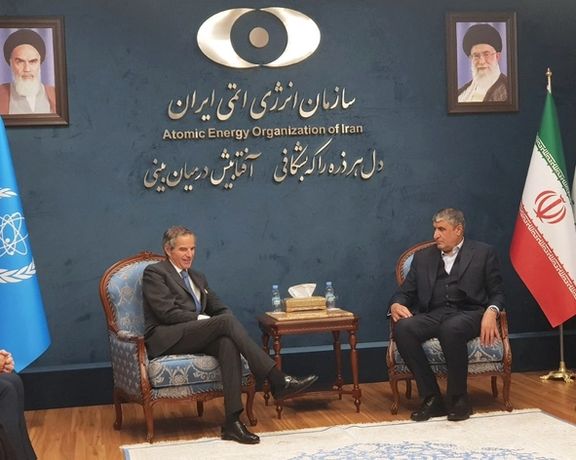
Liechtenstein noted that “Instead, E3 (France, Germany, and the UK) and US are drafting a joint statement that they will open up for co-signature from other countries.”
The joint statement is seen as a symbolic move against the backdrop of a reported secret deal between Tehran and Washington, announced as a prisoner swap agreement. Iran will release five Americans in exchange for its funds released from banks in South Korea and Iraq, blocked after the US withdrew from the 2015 JCPOA nuclear deal.
In reports to diplomats of countries forming the board of directors of the IAEA, the watchdog’s experts say that Iran's stock of uranium enriched to 60 percent purity, close to weapons grade, continues to grow but it grew just seven percent in the last three months compared with a 30-percent increase in the previous quarter.
The report was not officially released by the IAEA and was only reported in parts by some agencies such as the Associated Press, Reuters and Bloomberg. This was the excuse Vedant Patel, the Deputy Spokesperson for the US Department of State, used to dodge questions about the report in his press briefing on Tuesday.
“I am not going to comment on an IAEA report that has not been made public yet,” he said, adding that “Iran’s production of uranium enriched up to 60 percent has no credible peaceful purpose.”
Mocking the ‘joint statement,’ deputy director of the Foundation for Defense of Democracies (FDD) Andrea Stricker said that “US policy has allowed Iran to accumulate 5, 20, 60% enriched uranium and maintain nuke breakout capability, not cooperate on IAEA probe or reinstall cameras, hide away advanced centrifuges, and get $10 billion and unhindered oil exports.” “Why bother with a joint statement?”






